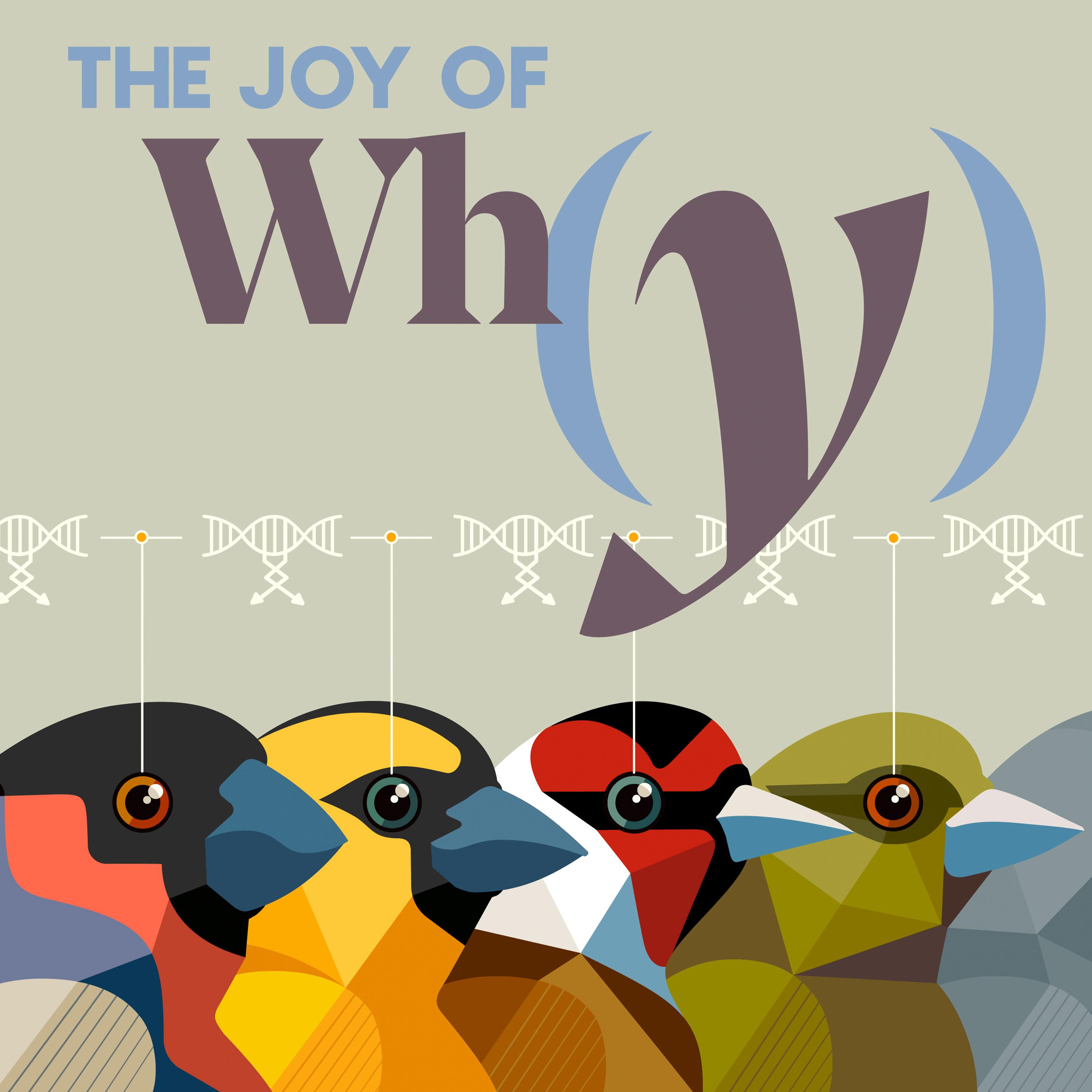
The Joy of Why
Steven Strogatz, Janna Levin and Quanta Magazine“The Joy of Why” is a Quanta Magazine podcast about curiosity and the pursuit of knowledge. The mathematician and author Steven Strogatz and the cosmologist and author Janna Levin take turns interviewing leading researchers about the great scientific and mathematical questions of our time. New episodes are released every other Wednesday.
Quanta Magazine is a Pulitzer Prize–winning, editorially independent online publication launched and supported by the Simons Foundation to illuminate big ideas in science and math through public service journalism. Quanta’s reporters and editors focus on developments in mathematics, theoretical physics, theoretical computer science and the basic life sciences, emphasizing timely, accurate, in-depth and well-crafted articles for its broad discerning audience. In 2023, Steven Strogatz received a National Academies Eric and Wendy Schmidt Award for Excellence in Science Communications partly for his work on “The Joy of Why.”
“The Joy of Why” is a Quanta Magazine podcast about curiosity and the pursuit of knowledge. The mathematician and author Steven Strogatz and the cosmologist and author Janna Levin take turns interviewing leading researchers about the great scientific and mathematical questions of our time. New episodes are released every other Wednesday.
Quanta Magazine is a Pulitzer Prize–winning, editorially independent online publication launched and supported by the Simons Foundation to illuminate big ideas in science and math through public service journalism. Quanta’s reporters and editors focus on developments in mathematics, theoretical physics, theoretical computer science and the basic life sciences, emphasizing timely, accurate, in-depth and well-crafted articles for its broad discerning audience. In 2023, Steven Strogatz received a National Academies Eric and Wendy Schmidt Award for Excellence in Science Communications partly for his work on “The Joy of Why.”


































































How Did Multicellular Life Evolve?

At first, life on Earth was simple. Cells existed, functioned and reproduced as free-living individuals. But then, something remarkable happened. Some cells joined forces, working together instead of being alone. This transition, known as multicellularity, was a pivotal event in the history of life on Earth. Multicellularity enabled greater biological complexity, which sparked an extraordinary diversity of organisms and structures.
How life evolved from unicellular to multicellular organisms remains a mystery, though evidence indicates that this may have occurred multiple times independently. To understand what could have happened, Will Ratcliff at Georgia Tech has been conducting long-term evolution experiments on yeast in which multicellularity develops and emerges spontaneously.
In this episode of The Joy of Why podcast, Ratcliff discusses what his “snowflake yeast” model could reveal about the origins of multicellularity, the surprising discoveries his team has made, and how he responds to skeptics who question his approach.